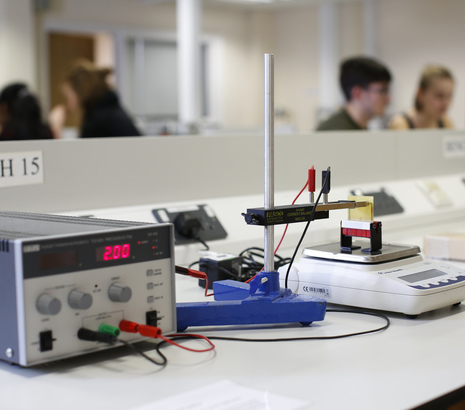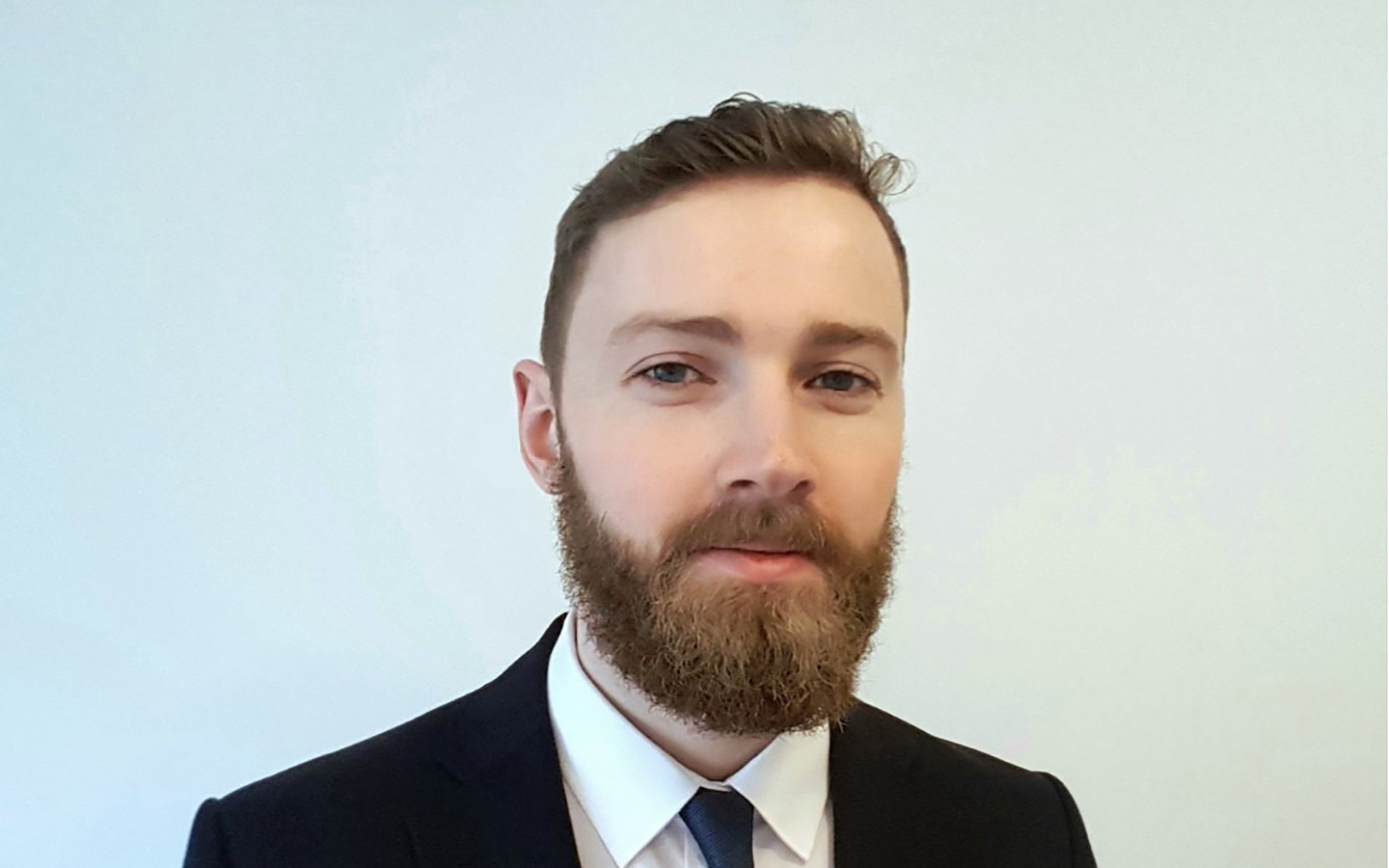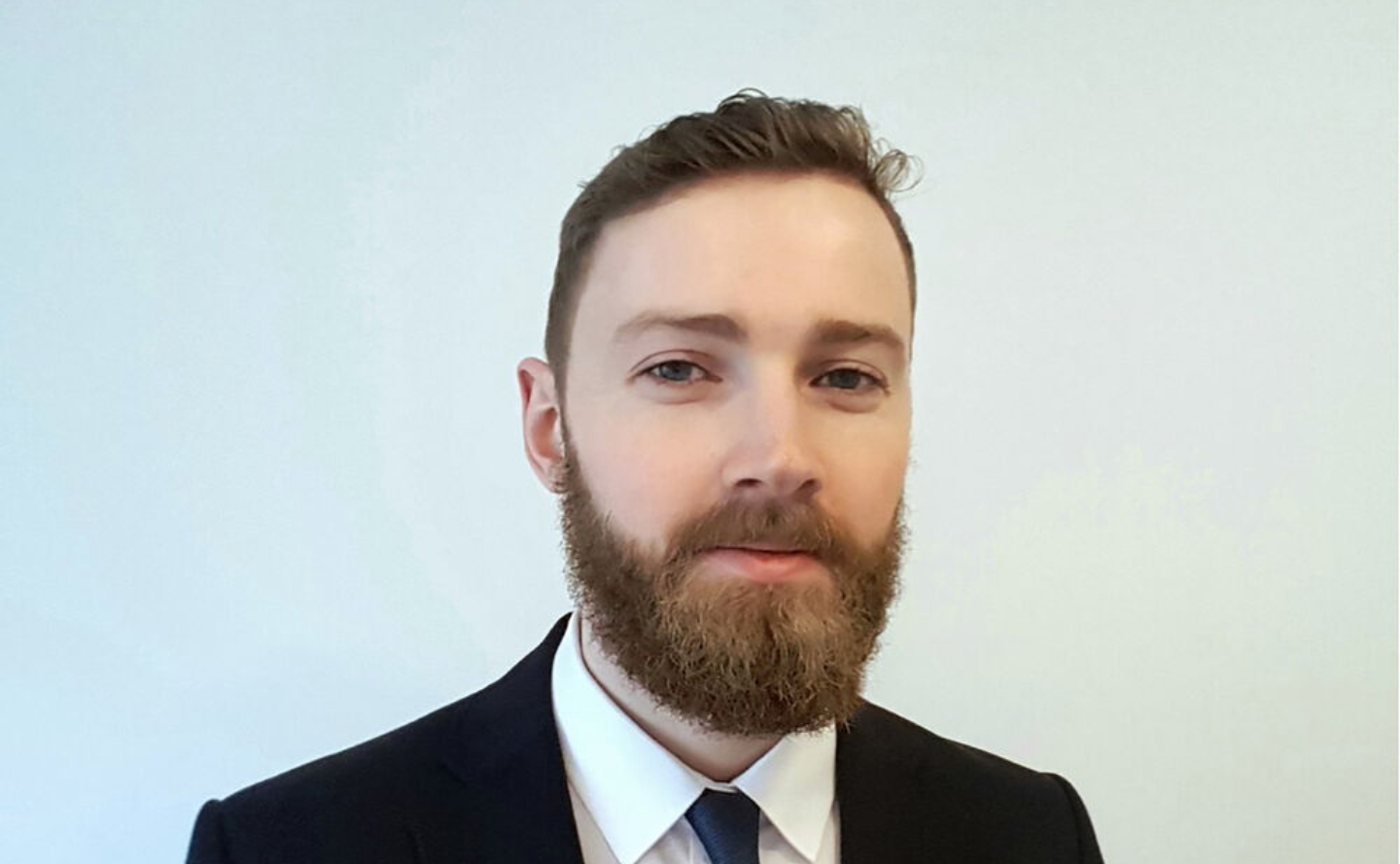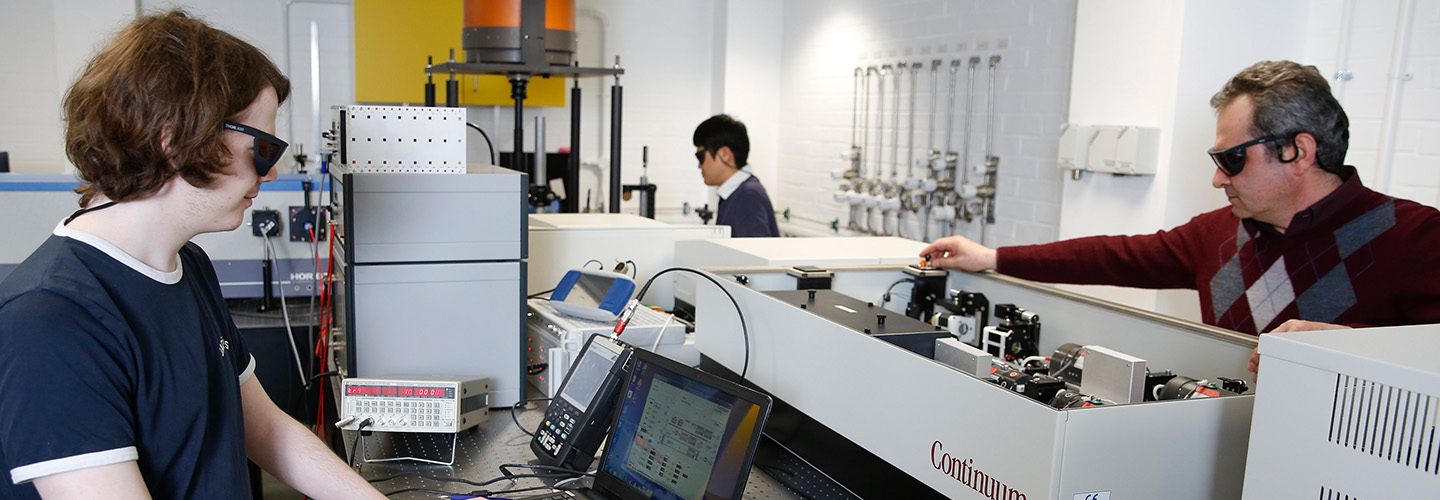MPhys (Hons) Physics
£2,000 scholarship available with the ‘Mathematics and Physics’ scholarship.
Key information
-
Typical offer:
Entry requirements -
Fees: See below
Full details -
UCAS code: F304
-
Institute code: H36
-
Study abroad option
-
Work placement option
Find out more
Why choose this course?
- 2nd in the East of England (after Cambridge) for Physics & Astronomy(2023 Complete University Guide)
- All staff are active researchers in their fields
- New modules include Particle Physics and Plasma Physics options
The MPhys Physics degree allows students to study physics to a greater depth and breadth than that of our BSc Physics degree.
An MPhys is particularly recommended for those students interested in pursuing research in the industrial, government and academic sectors, and who are likely to consider undertaking further postgraduate study (MSc and/or PhD degrees).
In the MPhys year, you will study more advanced courses in a range of physics specialisms (including atmospheric physics, medical physics and computational fluid dynamics). You will also undertake a large research project with one of our research centres.Your research project will form a third of your final year and you will be closely supervised and guided by one of our experienced researchers while you work on a cutting-edge problem in modern physics. Previous projects include work on the physics of aerosols in the atmosphere, inductive charging losses in electric vehicles, and using Josephson junctions as measurement standards.
We have an innovative strand of industrial physics projects supported by the Institute of Physics that give you direct experience of working in industrial research.
What's the course about?
The MPhys allows you to study physics in greater depth and breadth than our BSc. It’s particularly recommended if you’re interested in pursuing research in industry, government or academia, or if you want to go on to postgraduate study. During the course you’ll study more advanced topics such as atmospheric physics, medical physics and computational fluid dynamics. You’ll also undertake a large research project with one of our research centres. We have an innovative strand of industrial projects, supported by the Institute of Physics, that gives you direct experience of working in industrial research. You’ll also have the option of studying abroad or spending a year in industry or at a research institution.
Your main campus is College Lane
This is where the creative arts, science and health-related subjects are based. This means you’ll share the campus with future nurses, scientists, artists and more. You can use the common rooms to relax with friends, work out in the 24-hour gym or have a drink in our on-campus pub or cafes. We also have restaurants for you to eat in or grab something on the go. Our Learning Resources Centres are open 24/7, which means you can study whenever suits you best. Want to pop over to the other campus? You can take the free shuttle bus or walk there in just 15 minutes.
New School of Physics, Engineering and Computer Science building open now
Learn in our new state-of-the-art building science building called Spectra, featuring a variety of interactive learning spaces. Benefit from two brand-new physics teaching labs.
Spectra is home to the Centre for Climate Change Research and the Wolfson Centre for Biodetection and Instrumentation Research, which have both been created in response to the most pressing global challenges. You will also benefit from our Academic Support Hub, which is aimed at helping you build your employability and academic skills. Plus, have access to industry mentors who will provide you with pastoral support, vocational guidance and career progression opportunities.
Spectra will also provide space to collaborate, with plenty of workshops, social and meeting spaces available. Even better, the building has been designed with the University’s net zero carbon target in mind, and forms part of our plan to replace or upgrade older sites that are energy inefficient.
What will I study?
We take pride in our student-focused approach to teaching Physics. With one of the best student-staff ratios in the country we are able to put our focus on you as an individual and give you the support that you need to reach your full potential as a Physics graduate. Our graduates are in a wide range of careers, from scientific research to teaching and industry.
We use a variety of teaching methods during our Physics degrees, ranging from small-group tutorials, to lectures and practical classes. Our typical intake of students is around 50-60 in each year, which means that our class sizes are small enough so that your lecturers will know you by name. We place particular emphasis on transferable skills, employability and project work throughout the degree.
You will meet your personal tutor on a regular basis in small-group tutorials, which are a great way of reinforcing the material that you learn in lectures. We also offer a wide variety of support throughout your degree, from you lecturers, the School’s Maths Centre and peer support from our student proctor scheme.
Check out our student blogs

Student Blogs
Olaitan - Week at a glance
My week at a glance
Most days I wake up and usually jog around the field by the de Havilland campus. When the sun is just coming up and you’re surrounded by cows and nature there's no better way to start the day.
During lectures, I try to ask as many questions as possible. I try to clarify what I take from the lecturer at once, so we’re both on the same page. Afterwards, it’s straight to the library. Depending on the day, I’ll do problem sheets or take notes on a module in one of my many self-made booklets. If I need a textbook I can usually consult the online library portal. I’m not particularly good at programming, so If I need help, I can go to the programming support sessions they offer every Wednesday.
If I’m struggling with a subject, I’d bring it up with my lecturer, most have an open-door policy and are super chill.
If it’s a particularly beautiful day, my course mates and I will grab a couple of drinks. I’ve had countless fond memories there. The staff are friendly and there’s usually deals on food and cocktails to keep you coming back.
I’m on the kickboxing AU team and train three times a week which is very intense but it’s also incredibly rewarding. I’ve never been very sporty, so I took a big risk in joining the sessions. One year later, I’ve gone from third place at sports day shot-put (with three competitors) to the president of the team. The exercise is an awesome way to de-stress after a full-on day. In the time I’ve spent kickboxing I’ve gone to my first competition and gone up in two belt grades. Most days we get a pint in after which isn’t bad either. I’ve made so many lifelong friends and learned so much about myself in that space of time.

Student Blogs
Olaitan - Things you should know
Things you should know before starting your course
So you’ve just started at the university and you want to get stuck in. Here are a few things you should know.
Join a sports club. This is one of the most obvious pieces of advice you’ll hear but you will truly understand how important it is once you’ve joined. If you don’t want to be too committed to a sports team or you’re not regularly active, that’s cool. There are loads of ways to get involved. Active students is a program at the University that offers free, yes FREE, no commitment sports sessions. There are loads of various activities from badminton to parkour. We have way too much choice for you to be a couch potato. Once you get settled in a club, it can be the easiest way to make friends and a support system.
Be welcoming to international freshers. For many of those guys, it’s their first time out of their country. So uni might be a massive culture shock. If their English isn’t great, be patient. If you see someone who looks a little quiet in your lectures, have a chat with them. All their friends might be 1000s of km away.
Get to know your lecturers and make your face regular in your school’s building. If you keep building good relationships with your lecturers, you will get the most out of your course. Lecturers teach dozens of other students so it’s worth making yourself known and you will hit the ground running. Be the first at the gate. I’m obviously not asking you to be a square but you might as well get your money's worth(since the university is so expensive).
The best piece of advice I’ve ever received is...
...Start studying one week before your course starts.
Super simple. If you think about it, most learning isn’t done at lectures. It’s usually at the library. Of course, you should go to lectures, they are vital. However, from my experience lectures work better when you already understand the context of what's going on. And there is nothing more uncomfortable and morale destroying than not understanding what’s going on.

Student Blogs
Olaitan - Local area
Things to do in the local area
Let's say you've done everything on campus and you want to do a bit of exploring nearby. What do you do? Well here are a few fun places in the area that are only a short journey away.
Firstly, in Hatfield, we have the Galleria. It’s our local shopping centre just outside the campus. You’ll find yourself at the Nandos or cinema I bet. Moreover, we now have a sweetshop and free books shop. The book shop is my favourite. I have unearthed some rare once in a lifetime treasures. Walking around the Galleria is a great date. Getting some coffee, a bite to eat or just wandering around the shops. If you really want to have some fun there's a shiny SEGA arcade hidden in the back.
Although it doesn’t initially seem like it Hatfield is plentiful with large green open spaces. Just behind the sports fields on the de Havilland campus, there are massive farmlands that are perfect for summer walks and runs. Additionally, if you step just out of the station you can find Hatfield house. This is where they usually host Slam Dunk Festival. It’s a popular UK pop-punk, emo, metal, and alternative music festival. How insane is that?!
St Albans is a beautiful little city only a short train or bus ride away. It has a cute villagey feel with a huge open park by its town centre. You can lose yourself in the restaurants and nightlife or stroll around its various markets and high street shops. Incredibly good for exploring with its gigantic cathedral and museums.
London is a 25-minute train ride from the University of Hertfordshire. If you have a spare day, why not treat yourself to a trip to the big city.

Alumni Stories
Jordan Skilling
Meet Jordan Skilling whose Physics degree took him on an unexpected journey into the financial sector. Jordan is now a Commodities Trade Support Analyst for Morgan Stanley.
Read more stories BSc (Hons) Physics| Current role | Commodities Trade Support Analyst |
|---|---|
| Year of graduation | 2014 |
| Course of study | BSc (Hons) Physics |

University experience
Going to university gave Jordan the chance to study his favourite subject area and see where it took him. While he was interested in both Astrophysics and Physics, at the University of Hertfordshire he knew he would have access to one of the largest teaching observatories in the country, Bayfordbury Observatory. This was ‘a major plus’ when Jordan was making his university choices.
He decided to study Physics, but also developed a keen interest in Mathematics. He learnt to grapple with abstract ideas and make accurate and clear summaries of his thoughts. Jordan tells us how the logical thinking skills he developed at university helped him to ‘handle life in investment banking.' Furthermore, he liked the social side of student life. He was involved in societies and remembers ‘many funny days, laughing with housemates.'
Career progression
After graduating, Jordan landed a job with Merrill Lynch in Chester. It involved supporting the sales and trading desks in Singapore, London and New York. Jordan recommends new graduates consider starting out in a company’s off-site location as it’s a ‘fantastic way of getting your foot in the door, giving you the opportunity to learn a wide range of processes’. This experience was beneficial when Jordan later moved to London to become a Commodities Trade Support Analyst for Morgan Stanley.

